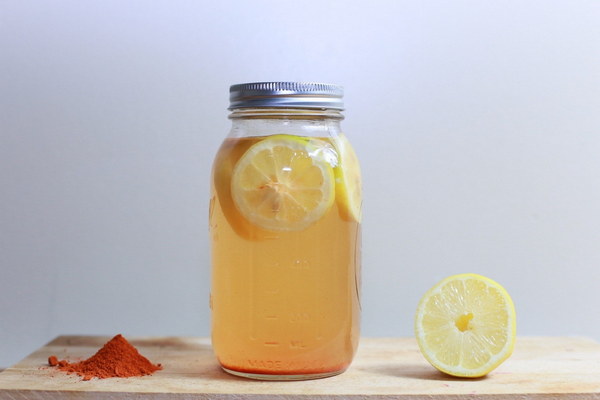Exploring the Side Effects of Yinyin Qingfei Granules on Children A Comprehensive Overview
Introduction:
Yinyin Qingfei Granules, a traditional Chinese medicine formula, is commonly used to treat respiratory infections and other viral conditions in children. However, like any medication, it may have potential side effects. This article aims to provide a comprehensive overview of the possible side effects of Yinyin Qingfei Granules on children, helping parents and healthcare providers to make informed decisions regarding its use.
1. Common Side Effects:
a. Gastrointestinal Discomfort: Some children may experience mild gastrointestinal symptoms such as nausea, vomiting, or diarrhea after taking Yinyin Qingfei Granules. These symptoms are usually temporary and resolve on their own.
b. Allergic Reactions: Although rare, allergic reactions to Yinyin Qingfei Granules can occur. Symptoms may include skin rash, itching, or swelling. If any of these symptoms appear, it is crucial to discontinue the medication and seek medical attention immediately.
c. Headache: Some children may experience headaches as a side effect of Yinyin Qingfei Granules. In most cases, this symptom is mild and can be managed with over-the-counter pain relievers.
2. Less Common Side Effects:
a. Dizziness: A small number of children may experience dizziness after taking Yinyin Qingfei Granules. This side effect is usually mild and resolves without medical intervention.
b. Fatigue: Some children may feel tired or exhausted after taking the medication. This symptom is often attributed to the body's response to the active ingredients in the granules and should resolve as the child recovers from their illness.
3. Potential Risks for Certain Children:
a. Children with Allergies: Children who have known allergies to certain ingredients in Yinyin Qingfei Granules should avoid taking the medication to prevent allergic reactions.
b. Children with Severe Liver or Kidney Disease: Yinyin Qingfei Granules may not be suitable for children with severe liver or kidney disease due to the potential risk of exacerbating their condition. It is important for healthcare providers to assess the child's liver and kidney function before prescribing this medication.
4. Precautions and Considerations:
a. Follow Dosage Instructions: Always follow the recommended dosage instructions provided by the healthcare provider or the product label. Do not exceed the recommended amount.
b. Consult Healthcare Providers: Before giving Yinyin Qingfei Granules to a child, it is essential to consult with a healthcare provider to ensure that the medication is appropriate for their specific condition.

Conclusion:
While Yinyin Qingfei Granules can be an effective treatment for respiratory infections in children, it is important to be aware of the potential side effects. By understanding the common and less common side effects, parents and healthcare providers can take necessary precautions to minimize any risks associated with the use of Yinyin Qingfei Granules in children. Always consult with a healthcare provider before administering this medication to ensure the safety and well-being of the child.









